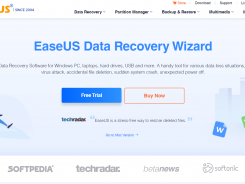Due to the Corona lockdown business suffered a lot especially the small businesses and startups which has faced huge losses and struggling to come up again. Let’s see what our experts’ advice to lead the business in this crucial time.
Joseph A. Federico – CEO, Founder of Anchors To Dusk Publishing, LLC

You have to understand what you’re good at; I mean it. You may be a marketer or publicist, restauranteur, etc., but if you don’t have a passion to pivot, you’re out of luck.
Stay organized, and touch base, virtually, with a business and finance coach. Learn what the market is saying to do then take the industry by storm. And you can do it on your own as well. No need for a large staff.
Lead by example and feed the need by educating people on your product or service. The public needs YOU right now.
Jason Patel – Founder of Transizion

You need to know your unit economics and realize whether you’re default dead or alive. In other words, if you received no investment money over the next year or two, can you stay alive while shipping your products? You should know how much you’re spending to find, acquire, and supply customers. And, on that note, you should know which marketing channels you’re spending on, how much your spending is, and how much you’re spending per customer on each channel. Once you have these numbers down and know whether you default dead, then you need to make some tough decisions about easing your ad spend. Your goal here is to keep the company alive, which means ensuring there is money in your company’s bank account to pay its bills, employees, and fight for another day. In a larger sense, you need to control your burn. The time of reckless spending and growth at all costs has been paused, for now. Since investors are reticent to pour more cash into startups right now, you need to conserve your own cash reserves and have a go-to-market strategy that keeps your company alive without risking death. That means cutting burn, trimming the fat, and focusing your efforts where your traction is.
Harshil Bhatnagar – Owner of Staiir Social Media Marketing

Prepare yourself for maximum flexibility. In what is probably going to be an extremely liquid circumstance, with conditions evolving day by day you have to situate organization assets to be receptive to all turns of events so you can rapidly decide proper subsequent stages. Hire your employees who can be multi-functional and adaptive to different departments or projects.
Utilize this chance to effectively connect with your financing partners to guarantee your accessible lines of credit stay available, and to investigate new or extra alternatives if you require them.
Dylan Howard – Co-founder of Flexr

Starting during a pandemic was difficult. However, as the saying goes “there is no right time to start a business”. One of the perspectives they thought of was that, as many businesses are dying due to the pandemic, it will be up to those who survive or new ones that were created during the pandemic to help the economy. Instead of rushing, they took it slow, began doing small amounts of PR and research, and made sure it was something that was needed and long-lasting. As it is a pandemic, it is about taking it a step at a time versus strides. This leaves room to pivot and adjust without exhausting funds, energy, and resources.
Nicole Caba – Founder & CEO of Avvinue

It’s been challenging managing a team remotely when there are many distractions at home and during the lockdown throughout Europe. To keep our energies high, we had multiple check-ins to keep engagement and support with the team. We had weekly 1-1 meetings, team meetings, and used several automation tools on Slack for ongoing connection, which allowed us to keep our spirits high. When we were feeling good as a team, we did much better with productivity. As a founder, it was my responsibility to ensure everyone felt supported during these times and was still able to have a sense of accomplishment for the business even though we didn’t have much traction during that time.
Alex Stewart – Founder of OneNine5

Get comfortable being uncomfortable! If you make a plan, be flexible enough to build the best and worst-case scenarios into that plan. Given the uncertainty caused by COVID-19, it’s highly likely that the macro environment will impact your own plans. And given this uncertainty, don’t beat yourself up if things don’t go to plan right now. Founders running start-ups typically want everything under their control but it’s almost impossible right now.
Sunny Ashley – founder and CEO of Autoshopinvoice

In the face of economic uncertainty, the best advice for startups is to avoid unnecessary expenses. Sometimes the wisest purchasing decision you make is that software, app, or service that you didn’t buy.
Now is a good time to reassess your business’s recurring expenses and order each list item in order of priority. Have your team look through past billing statements for line items for any recurring software systems, apps, third-party processing fees, etc. Then, assign each item a priority number. Inevitably some expenses will be mission-critical; these will be a higher priority. Others will be less so, and you can assign them a lower priority. If you do need to consider canceling a subscription or services, your priority list will be your guide when making these tough decisions.
For the mission critical expenses, keep in mind that many vendors may be willing to negotiate a lower rate during the pandemic. Reach out to each vendor to inquire whether pricing is flexible. Or see if you can get a temporary discount for at least the next few months. Keep in mind that most businesses are hurting right now, so be empathetic and don’t be pushy.
Christopher Prasad – Marketing Manager of JookSMS

Small businesses will take a central role in the new normal because of their size. Small business will be much more flexible in how quickly they can change operations to match guidelines, or general customer feeling towards safety because they won’t have to worry about rolling out issues nationally like a big supermarket chain would have to. All decisions can be taken in the house, meaning that you will be experiencing and understanding the needs of customers far more quickly than someone from the head office.
Deborah Sweeney – CEO of MyCorporation.com

My advice for leading a business through a pandemic is to use this time to communicate and listen. From chaos, we often find order. Focus on the opportunities that will arise out of this time. Work together with your team to identify areas where you can solve problems for customers. Encourage team member feedback and be responsive to new ideas.
Fion McCormack – Founder of Spark SEO

During this global pandemic, as we now face into a global recession, now more than ever your business will need a competitive advantage. This means you need to offer something truly different, something new, something that’s remarkably better than everyone else is offering. And you need to communicate that difference through your marketing and branding. If you’re reading this now and you don’t know what makes your company truly unique, it probably means that it’s not unique enough, in which case it’s time to go back to the drawing board. The important thing to remember is that every great product or service is only great because it solves a problem. But if you’re operating in a saturated market and you’re not the only one solving the problem, then you need to solve it differently. Solve it in a tangible way that’s ultimately better for your client than how everybody else solves it. That’s your competitive edge. That’s what makes your business different. That’s how you stay in the game.
Paula Skaper – President and CEO, Kinetix Media Communications Ltd.

Surviving in business requires being willing and able to adapt when the world changes. Coronavirus is no different – the same skills that help small business owners and start-ups thrive through any other economic or natural disaster are needed right now. But with a twist. This pandemic has essentially forced businesses to migrate to a primarily online environment, literally overnight. The companies that can’t/won’t do this, will have trouble surviving in a post-COVID 19 world. There is no simple answer or quick fix – every business leader needs to focus on two things: becoming a better leader and getting better at doing business online.
When you sharpen your personal leadership skills and your personal comfort level with technology, you can recruit the right people to help you answer the big questions. Most small business owners would do well to hire a consultant or contractor with deep leadership and technology experience to help them quickly answer:
- What long-held beliefs that I hold are no longer true? How is that hurting my business?
- How are my personal technology limitations hurting my business right now?
- How can I sell my product / deliver my service online?
- How can I build connections/relationships when I can meet people face to face?
- How can I run my business with a remote or semi-remote team?
- What technology must I put in place to make 3 – 5 possible/profitable?
- What training do I need to provide for my team? How?
- Do I need to bring new skills on board? Which ones? How soon?
- Do I still need the overhead of physical space?
- How do I need to shift my sales and marketing to be more effective online?
Bryan Clayton – CEO of GreenPal

When Covid said in and the reality became clear we knew we had to cut every possible expense that we could in order to survive, and I knew that I couldn’t come up with all of the good ideas myself.
I decided to come up with a unique idea by offering a bounty.
I offered any team member that brought a cost savings initiative that was practical and effective a 25% bonus of the cost savings for that initiative for the first year that it is implemented.
This has been effective in my current company and in my previous two companies that I have built and sold.
In addition to the cost savings the impact is a team commitment to running a efficient and streamlined operation and keeping resourcefulness core to our company’s values.
When suggestions for cost savings come from the team and are implemented by the team the outcome is team ownership and cost savings directly to the P&L
Brian Robben – CEO & Founder of Robbenmedia

Businesses need cash flow to survive. During good times this is true, and it becomes truer in a pandemic. To lead your startup through the trials, you must focus on customer acquisition or there won’t be a business to lead. Focus all the extra time available throughout the day on finding your target audience and making offers that catch their interest. Restaurants can find success using Facebook Ads to promote specials. B2B organizations can send direct messages on LinkedIn. You can blog, vlog, or podcast to build your audience and potential customer base. Heck, go door to door if you have to. At this point, do whatever it takes to drive new business to your company so you can continue to pay your employees and yourself. The sales work you put in today, helps you thrive tomorrow.
Jason Cherubini – CPA Chief Operating/Financial Officer at Dawn’s Light Media

We are currently living and operating in a truly unprecedented time. The current pandemic including the governmental responses and economic fallout are things that no business has ever dealt with, so there is no precedent to rely on. To complicate things further, there are still countless unknowns about what will happen in the coming days and months. This leaves business leaders attempting to make the best decisions possible relying on bad or nonexistent information.
This uncertainty at the management level is felt just as strongly, if not more so, amongst employees. With there being no definitive right “answer”, the best that leaders can do is attempt to follow the right “process”. That right “process” in terms of leadership is through open communication.
This communication should lay out the known economic facts and the expectations of what is coming so that all stakeholders are aligned on the situation. Then when the strategy and responses are defined, the “why” should also be clearly communicated. By having a clearly laid out understanding of the facts of the situation and what is expected to happen, and then explaining why certain strategies are being put into place, it will reduce confusion and minimize the agency costs that can arise with uncertainty.
This should not be a one-time occurrence, but rather an ongoing and living communication that is constantly updated as new information arises and expectations need to be revised. This won’t guarantee that the decisions made will be correct, but by having transparent communication will allow business leaders to better adapt their teams to the current unprecedented situation.
Camille Hugh – CEO of In Stitches Games

Leading a startup business in the coronavirus pandemic creates new challenges and limitations. In my experience, I have found it imperative to focus on creating engaging and relevant content and messaging, master amazon and social media marketing and advertising, and communicate with customers so as to let them know their business, especially at this time, is greatly appreciated and not taken for granted.
I think it is also important to be sensitive to people’s economic situations, as well as their personal situations (sickness/health issues) they may be facing, being real about your own struggles, but also stress a positive/optimistic outlook and how your product or service will make their lives happier and lighter.
Brandon Amoroso – CEO of electrIQ Marketing

First and foremost is engagement and responding to questions and queries in a quick and effective way we will win Gen Z over and help to convince them that they are heading in the right direction by engaging with the brand. This can obviously show a potential customer that your brand is caring and responsible and that they are going to receive a positive experience from spending their money with you.. Authenticity is key and ensuring that you have positive reviews is also going to nudge the sales in the right direction.
Dan Bailey – President, WikiLawn

Leadership during this pandemic requires someone who is confident but also highly empathetic and compassionate. There’s so much uncertainty, especially when our leaders aren’t giving us clear answers on what we should do and how we should proceed to keep ourselves and our loved ones safe.
I know many small business owners are focusing on keeping their businesses afloat right now. Obviously that’s a valid concern, but you won’t come out the other side of this if you aren’t taking care of your employees. Stay aware of their mental and emotional states and how those might affect their jobs. Offer them resources and make sure they know that they’re valued as people, not just cogs in the machine. Listen more than you talk, always. You can learn so much that will help you be a better leader during trying times.
Most importantly, I think now is the time to really listen to criticism. It can feel like just one more thing piling on, but if you take it to heart and do your best to improve, you’ll find yourself better able to navigate these difficult situations.
Neal Taparia – CEO of Solitaired

Recessions and uncertainty are unique opportunities to bring out your best. During good times, it’s easy to be complacent. Growth is healthy and you don’t have to think outside the box to stay on track. However, during tough times, like what we’re experiencing, you have to be creative and entrepreneurial to adapt and overcome the circumstances. It’s an opportunity to exercise your entrepreneurial muscles and creativity to navigate through uncertainty. If you and your team can get through this, you’ll come out stronger and be poised for tremendous growth.
For example, we’re growing a new gaming platform, and one of our games is solitaire, one of the most ubiquitous games in the world. Given that teams have been separated, and are looking for ways to decompress at home and connect to their colleagues, we’ve been able to get traction by creating custom-themed games for companies.
Stephen – Founder of Financing Solutions

It’s the same even when there isn’t a pandemic, get everyone moving in the same direction with the same intensity. During the pandemic though it is a perfect time to start a business because it usually takes 3 years to build all the processes and to get educated about the industry you are in. With not a lot of business coming it will force you to work twice as hard and when things turn, you will be right there ready.
Juan Pablo Segura – President and Co-founder of Babyscripts

4 Tips for Startups During A Pandemic
In the rapidly changing climate of a pandemic world, corporations have had to radically rethink their strategies for survival. The news is full of businesses adjusting to the demands of the outbreak — and the devastating fates of those who have been unsuccessful. In times of crisis, the divide between opportunity and threat is razor-thin, and a smart strategic plan can be the difference between leveling up or going under.
The startup world is a perfect microcosm for these strange times — even in normal circumstances, a startup is always on a tightrope, one step away from unicorn status or financial ruin. While the outlook may seem bleak, especially for startups counting on 2020 fundraising rounds, there are actually more opportunities for growth in a time of crisis than ever. Crisis exposes the failure of the status quo — instead of circling the wagons, investors are often more likely to be seeking innovative solutions.
As startups pivot to meet the changing landscape, here are four things to consider:
- Evaluate and Reallocate Budget
The first step in any economic crisis is to evaluate your spending channels and determine where you can cut costs. Obviously, many of those decisions happen on the personnel level, which is difficult at any time, but especially in a small startup team and at a time of insecurity.
Short of layoffs, there are other channels for savings. Are you paying money for SaaS services that are no longer relevant or can be taken on by employees? Organize your subscriptions and get rid of those you don’t need. Explore the possibility of renegotiating contracts with suppliers and contractors to benefit both — maybe contracting fewer hours or accepting discounted rates. Evaluate and redirect the flow of your marketing dollars — an ad on the subway may have been a good idea three months ago, but it’s not doing you any good now.
As a startup, you are always adapting to meet changing needs and most likely have a lot of irons in the fire. Now is the time for laser focus: to concentrate all available assets on your money makers. - Support Your Employees
Maintaining employee morale is crucial at a time like this, especially when budgets and responsibilities are being reallocated and you may have to make significant staff cuts or changes. Often you are asking your employees to do more for less, and it’s imperative that they feel valued and supported.
Transparency is key — the more knowledge an employee has on the direction that the company is taking and why the more personally invested they will be — loyalty is more likely to come out of this personal investment than from financial incentives. Of course, you want to make sure that your employees are also feeling financially secure. Contributing seed money to an employee’s HSA or 401K, or instituting a match program for contributions, can encourage employees to save. If possible, offering stock options in lieu of raises or to counteract pay cuts is another way to build security.
Above all, don’t ask your employees to do anything that you are not already doing yourself to a greater degree. - Recalibrate and Reposition
A solution that is not COVID-applicable is likely to be deprioritized on the purchasing chain. The businesses that can adapt to the demands of a pandemic and post-pandemic world are more likely to survive their challenges and attract investors who are narrowing their investment channels.
“Reposition” is the key term here — this is not a call to invent new solutions, or even to provide a solution specifically for COVID-related needs like symptom recognition or virus testing. It’s about “reading the room” — what people are looking for in times of recession, in times of social distancing — and leveraging the infrastructure and workflows already in place to scale solutions.
Ride-share companies are pivoting toward food and grocery delivery, restaurants are working from “ghost kitchens” and developing new menu concepts conducive to drive-ups and leaner budgets. Personal training apps have come up with modified workouts that don’t rely on the use of gym equipment and can be done in a smaller space, like a studio apartment.
These changes fit the needs of the current crisis, but also look forward to a time when consumers will be operating on leaner budgets. People still spend money in lean times — in fact, they are much more likely to spend money on small luxury items when they are holding off on big purchases. Sometimes it’s just about figuring out where your business fits in a changing landscape and adjusting your messaging to emphasize that niche. - Empathetic Selling
In a time of global crisis, the last thing a company wants to do is come off as insensitive to the pain and suffering of those affected. Consider the ways that your business can help alleviate the pain of others, and do everything you can to support your client base. Offering flexible pricing (if you have the financial runway to do so) or sharing best practices and tips with traditional competitors will pay dividends in the long run.
As an external event, the pandemic is much less likely to affect commerce long-term than an internal event like the ‘08 recession, and if startups can adapt to the needs of the post-pandemic landscape and weather the next 12-24 months, their chances for survival are high — well, as much as they ever can be in the volatile startup world.
Michael Alexis, CEO of TeamBuilding

This is the time to work on your emotional intelligence and intuition. Your team members are stressed and stretched thin; from the pandemic, from the isolation of working from home and other factors. Consider their points of view, and how you can contribute to stability, health, and wellness right now. For example, providing more information and transparency can help. Allocation some time to internal team building can too, which may just mean including icebreakers at the beginning of meetings.
Tom Dempster – Operations Director/Founder at True Boost Digital

Leading a business in the midst of COVID-19 has been challenging. We started our marketing agency, True Boost Digital, in September 2019 after I’d spent several years as a sole proprietor. Our plans for 2020 were thrown up in the air by the pandemic, with many businesses choosing to pull back from investing in marketing.
The best piece of advice I can offer to business owners? Act with empathy. That’s all day, every day. We are all in this pandemic together, whether that’s as employees, as clients, or as a local, national or global community. If you run a business, ask yourself – how can I help my employees through this pandemic? How have my customers been affected by COVID-19 and what can I do to help them? And more broadly, what actions can our organization take in the local community to help those who have been affected?
In the long run, creating a culture of empathy ingrains itself in the DNA of your business, and it’s a good lesson for life. Even though building relationships and helping others is at the core of every successful business, we shouldn’t choose to help because there’s an incentive for us; we should help simply because it’s the right thing to do.
J Haleem Washington – President & CEO of J Haleem, LLC

The best way for Start-Ups and Small and Micro Businesses to lead during a pandemic or critical situation is for them to understand two things: honesty and flexibility. While in the startup phase and as you are building your team, not only do you have to be honest, but you also have to be transparent. First, with yourself and second with your team. You will need to lean on them. This would be a great time for subordinates to step up and help you out. You will need to learn from them, especially in a time like this when the world is in the midst of a global pandemic. Not only does everyone need to be on the same page, but everyone needs to be clear on what their individual roles are and the expectations they are being asked to meet. Honesty is something that needs to happen also in those moments when you don’t know something. In a pandemic or a time of global crises, so much of the world is changing. What is true today, may not be true tomorrow, especially as it pertains to business. Another important point of the attribute is flexibility. Start-up business owners, have to put themselves in the proper position to be flexible. This includes your workday and your staff, those in full-time positions as well as support roles. Flexibility begins in your mind. You have to be willing to use what you have at your disposal but also be open to trying new things. Because your business outlook may change, you can’t get stuck on what you used to do because what you used to do may not be available right now.
Hamim Moshtaghian – CEO of Elcid Tour

Actually, during this difficult time, our company encounter different problems from a lack of cash flow to halt all activities. I believe the essential point is how to keep the connection with employees. If they felt that they were abundant, they would have let the company go down without a doubt. At the moment that the only connection is through Slack or Zoom, they still should have the feel of commitment to the company. We have tried to keep this commitment by offering them perks and bring happiness to their daily life. Although it may have cost at first glance, in the long run, it is investing in the people. Adapting to the new environment is another factor in surviving in the pandemic era. We have decided to develop our online booking and domestic tours as soon as possible to keep costumers in the summer. In the end, I am delighted that we have such a great team that could handle the situation well.
Robin Bennett – Co-Founder of The Dog Gurus

- Begin a waitlist for routine services NOW. That way they have a list to use to get clients and achieve as high occupancy as possible. Someone needs to work this list continually. This will be especially important for grooming, daycare, training, petsitting
- Create special activities to celebrate a return to “new normal”. Put together several “ready to go” activities that you can roll out as soon as openings are announced. These will help generate enrollment/signups for daycare and training to celebrate. Use scarcity to promote these and maximize attendance. Give people a reason to return.
- Create special one time events to encourage lodging. This will be the last service to come back fully so create reasons for people to bring their dog in for overnight stays. For example: date weekends to celebrate (partner with local stores who can provide gift certificates as part of the package), movie nights for the dogs, sleep overs, etc. Encourage owners to get their dogs back in the routine of staying overnight to prep for the holidays.
Keep in mind that she people may still be nervous about going out so continue to maintain safety protocols.
Finn Cardiff – CEO and founder of Beachgoer

My best advice is to create a survival plan like what we came up with during the early days of the quarantine period. It’s a good business continuity measure so that the entire team is glued on its feet and can readily adjust for the “new normal.” Our goal is to make the transition a lot easier and as a CEO, people depend on my decisions all the time. By showing true leadership skills in this manner, I’ve kept our team functioning even in this most trying time.
Nellie Akalp – CEO and Founder of CorpNet.com

During Coronavirus, it’s important that leaders stay transparent with their teams while also remaining upbeat and motivational. Many people are on edge during this crisis. Your team could be worried about their job security and you may be worried about the future of your business. It’s important that you communicate that you are aware of the worries from your team but remind them you are doing everything in your power to keep the startup open and business coming in. If they see their leader working night and day to keep the doors open, they will be motivated to work just as hard so everyone is in the trenches to keep things afloat until the pandemic is over.
Zack Zarrilli – Founder of SureFire CPR

Goals are extremely important especially during this hectic time with COVID-19. By setting specific short- and medium-term goals it allows teams to get back into their rhythm as quickly as possible. A few short terms, attainable goals will lead to early wins which can improve morale that may have languished. Team members can be feeling low due to the negativity in the news, inability to socialize in person, and difficulties in getting outside. Combat these feelings and motivate your team by setting some smart, measurable targets to get your team back on track. Reinforce how your company values align with the personal values of your team members and watch morale and productivity rebound.
Paige Arnof-Fenn, Founder & CEO of Mavens & Moguls

1) Remote work is here to stay, teams working from home more will need to invest more in systems and platforms that allow teams to work productively from home, access files, communicate with clients and each other, etc. It is a smart investment to stay flexible with so much uncertainty around timing, instability in the stock market, possible new viruses, etc.
2) Your website is your calling card and SEO is critical to your success you do not exist today if you cannot be found online. As a business, you must have a website and I’d argue businesses always need SEO because the whole point of having a web site is to make it easy for customers to find you. Being invisible online is a terrible strategy so making sure your site is keyword rich, mobile-friendly, loads quickly, and produces meaningful content today is the price of entry. That also happens to be a great foundation for effective SEO. Make sure your site is robust and can handle e-commerce traffic if necessary. Find ways to leverage Content Marketing, Influencers, Video, PPC, podcasts, webinars, etc. and find ways now to ensure your site stays at the top of the search engines.
3) Online marketing is the best way to reach your audience communication is key to all of our community, customer, and employee engagement. Another pivot because of the lockdown, this is a great time to build your brand through online marketing and social media. Allocate more budget for online activities to engage your audience and prioritize it overprint and events to prepare for a future with less travel for conferences and trade shows.
4) Trust and compassion above all else I predict the most trusted leaders and brands will have a big competitive advantage in the new normal that evolves in a post-Corona world. Employees, customers, and clients will remember who treated them well during the crisis and they will be rewarded with loyalty from earning that trust during the bad times. The current crisis has provided a stage for our political and business leaders to rise to the occasion. We have learned that it is about touching people in meaningful ways which may mean being less busy not more for a while. As far as messaging goes, between the pandemic and the possible recession, leaders and brands have an opportunity to further connect with anxious consumers and focus on the true relevance of their products or services. We have learned to acknowledge that now things are different so we need to communicate in a way that will give our audiences better focus, helping them to create a bridge from today to the future. We need to communicate in a way that combines information and need, synthesizing feeling and facts. I feel we have a tremendous responsibility because never before has communications had the power to help society in the way that it does right now. Words are part of the healing process and we can see which leaders and brands are doing the best job every day with messages that touch not only the mind but also the heart and soul. There has never been a more important time to provide accurate, empathetic communication with transparency, truthfulness and timeliness. It is inappropriate now for content to appear tone-deaf in any way to this crisis. Do not ask to be paid, be too salesy, imply solidarity, hope they are doing well, etc. it seems cheesy and worse opportunistic.
Online meetings, webinars, social media, etc. are a smart and productive way startups can continue to have conversations that educate and inform, build relationships and move forward during this crisis period. Once we lay this groundwork it all will be in place to continue moving forward as the economy reopens and some businesses come back quicker than others. Maybe the silver lining is that this crisis reminds us that we have always needed each other and we have learned that everyone is struggling right now to find a new normal so the key is to show our humanity and compassion while we look out for one another. With Zoom, social media, cell phones, etc. We see that technology does not have to be isolating it can be used to build our real-world communities and relationships too!
Saurabh Bajaj – CEO of Swiftlane

Renegotiating contracts with vendors Businesses are bleeding right now, and so is your company and the vendors. Talk to your vendors to identify discounts you can get on the SaaS products and services to get through the pandemic. Businesses don’t want to lose customers and want to identify ways to maintain continued business. Create peace of mind for employees. They are worried about their return to the office, which is an enormous burden on productivity. It’s important that people feel safe coming back to work. It’s important to establish safety protocols for those who are allowed to come into work.
Reprioritize projects and Cut down discretionary spend Find out “nice to have” products and services, as well as projects in the company, and eliminate those. Right now, the goals need to be aligned with surviving the uncertainty of the pandemic and making some short term tradeoffs to achieve that.
Kamron Nelson – Director, Business Growth Partners at bgpus

The marketing cost it takes to acquire clients is high for a lot of businesses, so working your current customer base by asking for referrals, or consistently selling to them (because they’ve already bought from you so the trust is there) will help startups through a difficult time.
Another piece is keeping optimistic and believing in yourself and your business. A business leader that does not have a positive attitude will destroy the business and morale of their team.
Finally, creating a good culture within the business is key because if the team is happy and enjoying what they do for work, it will project onto the clients.
Michael Hamelburger – CEO of The Bottom Line Group

As the CEO of our firm and in tune with industry workforce talent, CEOs of small businesses must look for applicants who have cross-over skills. Those who know how to tap into their other skills to allow them to survive in this challenging economy are ahead of the crop. They know how to adapt and can prove that whatever challenge there is, they are willing to sweat it out.
Here are some characteristics of applicants that will keep your team ready to face the new normal:
- Remote-ready employees who are on an advantage during this season because of the social distancing measures imposed upon by the authorities. Thus, those with skills that can easily be applied to online client management are a priority.
- Those who can manage their personal brands well and how well it translates into their resume as evidenced by their adaptability to critical situations.
- Those who have taken recent training to upskill. This is very important to reflect on how eager they are to pursue lifelong learning and how they used their time well during the lockdown.
Lakshmi Baskaran – VP of Engineering for Sedna System

In the current scenario, one of the key priorities of startups and small-sized businesses is to ensure the retention of existing customers. The current business conditions are not encouraging to sell products and services to new customers.
Companies tend to have a huge pile of feature debts that are either new feature requests or changes to existing features that were requested by customers. These feature requests were not fulfilled due to conflicting priorities or accelerating sales demands. During times like this, companies should address feature debts and ensure that their existing customers are satisfied and are given no reason to discontinue using the service. The technical debts is another area that companies can focus during lull periods like this. Technical debts including but not limited to software upgrades that companies do not get to prioritize in an otherwise normal and high growth scenario. Now is the time to ensure that software is made to live forever.
Above all, the key is to ensure the employees remain motivated and do not feel vulnerable during unprecedented times. Most startups cannot afford a mental health plan or can bring onboard experts to ensure the mental health of employees is taken care of. But what is more important is having frequent and personal conversations with employees. That will make employees feel safe about discussing their fears and challenges. That sets for a long term relationship between the employer and employee.
Sean Nguyen – Director of Internet Advisor

I think caution is the most important thing right now. I see a lot of businesses jumping the gun with reopening, or with sales, or just over the top responses. In certain situations, a big, risky move can save the company, but if you’re not in imminent danger, do not put yourself there by rocking the boat. I would focus on everything you can do to maintain normal operations – whether that’s financially or just everyday processes. We’ve been fortunate enough to not run into any financial issues because we’ve seen a rise in customers, but the quarantine definitely hit us where it hurts. Our company helps people find internet providers, so we have essential workers out in the field setting up connections for people. I had to make some fast decisions and think about how I can protect my employees, first and foremost, and how I can ensure that the process is faster and more efficient to limit exposure time. Remember that when you’re a leader, you’re also making decisions for everyone else, not just the business.
Nelson Sherwin – Manager of PEO Companies

Listen, when your business is in crisis, it’s time to stand firm. Your team cannot see you hesitate or lose it in any way. They are counting on you right now to know what is right and to lead them, so you’ve got a lot of responsibility on your shoulders. My advice is to be confident in your abilities and your ideas. You’ve done well so far, there is no reason why you wouldn’t continue to be successful. I know it’s a tricky time for everyone, but it’s not the time to falter in confidence. If your team sees that you are lacking conviction, they may become discouraged and bail. You should maintain business as usual, for the customers and the employees. Do not allow customers to see you sweat, because that may trigger an even bigger crisis. Channel your inner Brit: Keep Calm and Carry On
David Metzler – CEO of CBDCapitalGroup

- Stay profitable, and/or get there quick. If you are already profitable on current run rates, assume that you need to be able to dynamically cut costs on a bi-monthly basis if you see your sales going down in any two-week period. This isn’t an easy conversation to have with your team, so we recommend just telling the truth to your employees now. Look at employees with compassion, share the real situation, and connect with them as people with a family because that deserve transparency. This will help you keep as many as possible because they will respect you more for treating them with empathy. We recommend that non-profitable companies make or ask for salary cuts. Because we lead from the front, we are asking our CEOs to start that process by doing it themselves as we did.
- Know your cost and supply chain. We made sure both of our companies who ship labels and other bottles from China have a year of supply. But, at the very least, know that the supply chain is going to be impacted with delays. Know your unit cost and make sure they are profitable and that you can adjust dynamically.
- Marketing to help people out. People are going to be scared and losing their jobs. Create a working relationship with them to help them through, and thereby your company, through these times ahead. We are helping all of our companies get going on a subscription revenue business because this is a reliable way to create a long-term loyal customer agreement. Basically the customer gets a discount for buying continuously, and you get reliable revenue. It’s a win/win.
Jayson DeMers – CEO of EmailAnalytics

While we wait to get through coronavirus, business owners have a fantastic opportunity to work on content marketing efforts, and SEO.. You can write blog posts, perform keyword research, and perform many SEO-related tasks from anywhere as long as you have an internet connection, and there are lots of free resources that easily explain how to do simple SEO tasks that can have a big impact on your website’s keyword rankings and search traffic.
For example, one thing you can do right now is write a blog post (or make a Youtube video or audio podcast) that provides relevant advice or helpful information to your target audience relating to the COVID-19 pandemic. What unique or specific advice can you provide to your audience based on your expertise or your business’s position in the marketplace?
As an example, when everyone started switching to work-from-home, we published a few blog posts to help folks looking for tips and tricks with making the switch. We rode a huge spike of search traffic for related keyword searches in Google, and attracted thousands of visitors to our website from people who are in our target audience (remote workers and managers managing remote teams).
Vince Massara – C.C.O at Edu Test Labs

In fact, I believe that “small size business and start-up” need a guide to tackling this critical situation step by step. This guide deals with the most three important elements you need “mindset, money, and strategy” and also, provide actionable and concrete suggestions to survive and even grow your start-up in this critical situation.
Sarah Dowzell – Co-founder Natural HR

I’m sure many of us Founders feel as though we’re not progressing nor moving forwards in the current situation. Especially as our start-ups have been so fast-paced until we’ve been stopped in our tracks by something so far out of our control.
You might feel as though you do not have any news to share with your team, but a lack of communication can lead to your team filling in the blanks. To have your team form their own views on what’s happening will create problems.
Instead, communicate with your team regularly. Even if it’s just to share the fact that there are currently no changes. This might be that you’re continuing to work from home for the next month, or informing that there are no planned changes to the size of the team this month.
Let your team know when you’ll next provide an update and get it in your diary.
Kim – CEO of DocPro.com

COVID-19 is especially challenging for startups, with very limited resources and the inability to raise further financing. Since March, DocPro has re-focused on offering COVID-19 related documents to our users, such as a request for waiver of school fees or loan moratorium, and those documents have been generating the most traffic in the past 3 months. To keep our staffing lean, we are getting everyone to work from home on an hourly basis, that way we can keep a tab of our remuneration costs and our rent by giving up some seats at our shared office.
Wrapping up.
Thank you all for sharing your thoughts with DailyScrawl visitors.

















































































